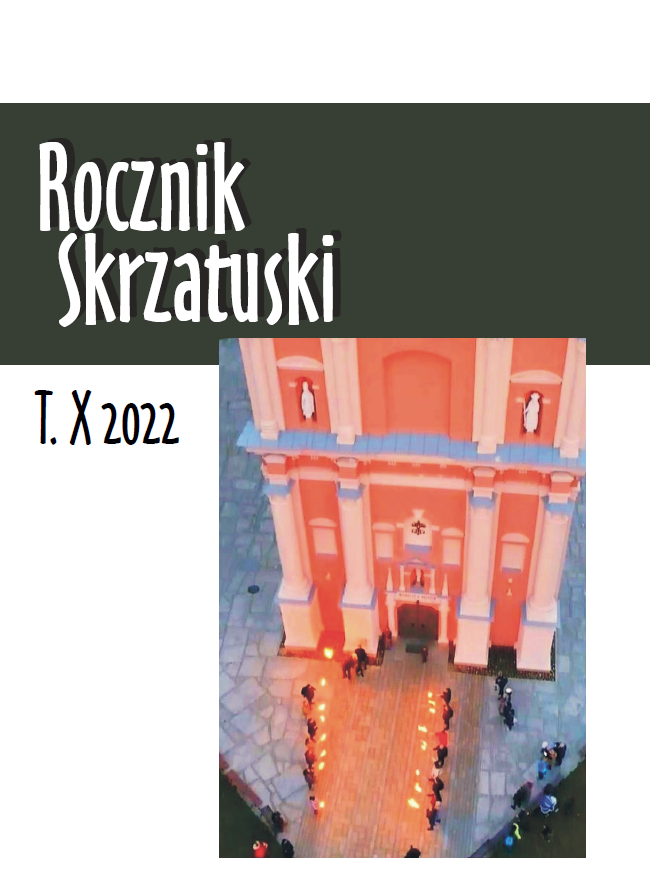Obraz Kościoła koszalińsko-kołobrzeskiego na łamach „Głosu Pomorza” i „Głosu Koszalińskiego” w latach 1972–1989
Picture of the Koszalin-Kolobrzeg (Kołobrzeg) Church in the relations of the “Głos Pomorza” and “Głos Koszaliński”, 1972–1989
Author(s): Andrzej RybakSubject(s): Christian Theology and Religion, History of Church(es), Theology and Religion, Pastoral Theology
Published by: Biblioteka Wyższego Seminarium Duchownego Diecezji Koszalińsko-Kołobrzeskiej
Keywords: Church; Koszalin-Kolobrzeg (Kołobrzeg) diocese; bishop; priest; state; newspaper; local press; renovation, constructio
Summary/Abstract: Thanks to the decision of Pope Paul VI of June 28, 1972, contained in the bull Episcoporum Poloniae coetus, the diocese of Koszalin and Kolobrzeg (Kołobrzeg), which is still changing up to this day, was established among other Polish dioceses. The establishment of the Koszalin-Kolobrzeg (Kołobrzeg) diocese with the papal bull was treated as a success of the long-term policy of the authorities, and the handing over to the Church of sacred buildings in the Recovered Territories as the good will of these authorities. But the information about the organization of the diocese and the ingress of Bishop I. Jeż was described just laconically, in smaller print and at the bottom of the second page of the newspaper. Until the 1980s, there was very little information about the diocesan Church. After the imposition of martial law, the Church stood up in defense of the internees, organized food and medical aid, and celebrated “Masses for the Homeland”, which was “salt in the eyes of the rulers”. At that time, the Church received some permits from the local administration to build churches, catechetical rooms, presbyteries, and especially the diocesan Higher Theological Seminary in Wilkowo near Koszalin. Many renovations were also carried out, the most important of which in the Koszalin-Kolobrzeg (Kołobrzeg) diocese was the renovation of the co-cathedral in Kolobrzeg (Kołobrzeg). Most of the renovations were financed from the contributions of the faithful. In the mid-1980s, more and more often and much more was written about the diocesan Church in the local press. Unfortunately, the focus was on pointing out to priests their alleged wealth and improper management of money. Church construction was contrasted with housing construction, the authors arguing that churches were built in too high number and were also too expensive. Priests were accused of an unpatriotic attitude regarding the speech from the pulpit. In their activities, priests were focused on the Christian doctrine: teaching morality, administering the sacraments, while for the communists the most important thing was to disintegrate their work, to tarnish their authority. They took all the activities of the clergy in political terms. At the end of the 1980s another, this time a positive change, occurred in the presentation of the life of the Church. It was related to the preparation and conduct of the Round Table talks. Representatives of the Church acted as observers during these deliberations. Głos Pomorza began its expansion in positively portraying the ministry of the diocesan bishop who met with the voivode, presidents of local political associations, trade unions and party activists. Bishop I. Jeż, at the provincial governor’s request, also visited state-owned farms and health care workers together with him, and received wishes from provincial authorities on the occasion of his 75th birthday.
Journal: Rocznik Skrzatuski
- Issue Year: 2022
- Issue No: 10
- Page Range: 263-290
- Page Count: 27
- Language: Polish

